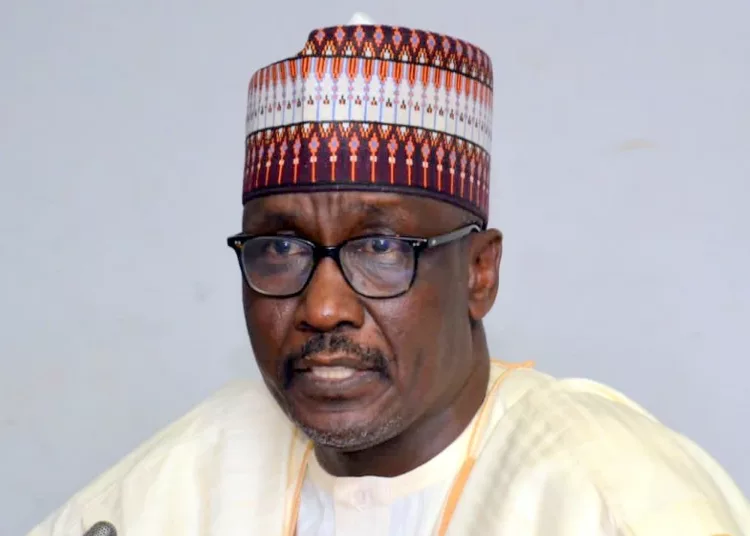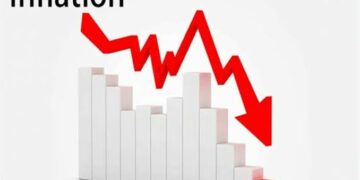Energy and economic experts have called on the President Bola Tinubu-led administration to review the fuel subsidy removal policy in line with the current realities thrown up by the reform.
They also insisted that change must begin with the Nigerian National Petroleum Company Limited (NNPCL) and other institutions for the reforms introduced by the current administration to be driven well for the benefit of the people especially the downtrodden who suffer the most as a result of the policies.
The experts also called for the paying particular attention to the refining infrastructure to end Nigeria’s dependence on fuel importation and privatise other refineries while blocking revenue leakages to achieve fiscal liquidity and the management of the nation’s resources.
They made these suggestions at the third quarter of policy and governance discussion platform roundtable with the theme, “Nigeria and the Fuel Price Conundrum: Mitigating the Risks to Macroeconomics Stability,” held via zoom at the weekend.
In a lead presentation, an economist and development consultant, Prof Muhammad Sagagi lamented that the nation has been thrown into a deeper economic crisis, unprecedented cost of living crisis while the low income people and micro, small enterprises are disproportionately affected by the removal of fuel subsidy.
He admitted that when President Tinubu assumed leadership last year, Nigeria was already facing unprecedented and overwhelming underlying conditions as the growth rate of the economy was very low, job sector constrained, poverty widespread and intense, price distortions occasioned by exchange rate system and while investors were running away from the country.
Sagagi however said that despite the condition that the president found himself, he was up to the task and started reforms from the “Eagle Square” and justified his action that subsidy was expensive and other arguments but 16 months after the policy and reforms were ‘unleashed’ on the economy, the country is still having problems.
“Nigeria is like the 25 top economies with high expenditure on subsidy. They estimated that in 2020, we paid about $18 billion on subsidy – on PMS, electricity and gas. The subsidy payment in Nigeria has varied from N2 trillion back in 2015 reaching a peak of about N4 trillion in 2022. With the subsidy removed, it is the poor people that are proportionately affected.
“The president said we are going to have substantial gains from the removal of fuel subsidy. There is also the argument that there will be substantial inflow of resources into the downstream sector of the petroleum industry but what is even more scathing is that there are no risks or they are minimal since the poor don’t benefit from subsidy.
“If you remove subsidy, the worst scenario, there will be some increase in transportation cost but all shall be well especially if you invest. This will take care of the vulnerability of the poor, build infrastructure and education. So, those are the arguments and the justifications. Of course, you can’t isolate one from other problems – the other reforms like the harmonisation of exchange rate. You cannot isolate the impact of subsidy removal on the other reforms,” he said.
According to the Professor of Economics, Tinubu made critical mistakes in the implementation of his agenda as every reform has protocols and principles that if breached could lead to failures.
“I questioned the readiness of the agency that implements this reform, the NNPCL. You can see from all the difficulties that Dangote faced – that is what I said at the beginning, the subsidy regime is not a technical problem but it is a political one. Those that benefit from the status quo will do everything to ensure that it doesn’t succeed. I doubt the commitment of this agency.”
Also, a former chairman of the Federal Inland Revenue Service, Dr Ifueko Okauru said while it was important to change the modus operandi of NNPCL, such dynamism must also take place in higher levels of leadership to address the country’s challenges beyond the oil sector.
“The issue of an NNPCL or where the change should start is not the NNPCL. Professor Sagagi suggested it when he said the president should lead by example. Where we are now – the level of rot and disbelief – whatever we do, it has to start from the top in driving the change,” she said.
On his part, an energy economist, Dr Kelvin Emmanuel also blamed the crisis in the oil sector on the insincerity of the NNPCL, calling for the reform of the company and other holistic measures to be put in place to address the fuel price conundrum vis-a-vis mitigating the risks to macroeconomics stability.
In his intervention, the special adviser on economic affairs, Office of the Vice President, Dr Tope Fasua said through the involvement of the private sector in oil refining, the stage was set for repositioning of the sector, insisting that the gains of the removal of fuel subsidy were already being felt in the country.
Fasua harped on the need for interventions to cushion the effects of fuel subsidy removal but cautioned that measures such as direct cash transfers be replaced with investments in sectors such as agriculture and other production chains for better value addition.
Chairman of the roundtable, Prof Babafemi Badejo noted that Nigeria’s economy was deeply reliant on oil and to some extent, gas and removal of subsidy on the product has been a long standing issue that touched all facets of the economic fabrics from inflation and cost of living to government revenue, foreign exchange reserves and fiscal policy formulation.
“Of course, not to forget the impact of all these on our exchange rates and the cause of this challenge lies in the delicate balance of how we as a nation manage the volatility of global oil prices while mitigating the adverse effect on our economy.
“We cannot exhaust this discussion without looking at the leadership deficit in this country, the corruption pandemic in our nation and the management fraud in our oil sector. In general, leaders in academics and politicians have been abusing the word subsidy giving the dog a bad name in order to hang it.
“Subsidies are employed as a policy tool to cushion citizens from volatile crises in specific sectors. The decision on which sector receives subsidy and on what depends on the interest juggling in a power-play in the society.
“While offering a short term for relief, the oil subsidy regime in Nigeria bears its own several challenges chiefly which are corruption, recklessness and the callous mentality that led to the most irresponsible management of the resources at the expense of other Nigerians.
“In Nigeria, subsidies are primarily of the rich, by the rich and for the rich. The supplementary budget as President Bola Tinubu did for his airplane should have been done to take care of subsidy,” he added.





